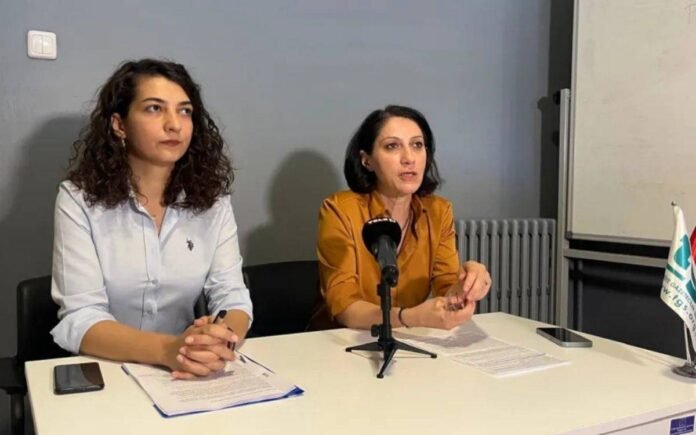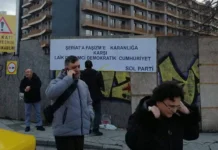The Turkish Journalists Union (TGS) warned on Tuesday that the authorities are increasingly using court-imposed restrictions to intimidate reporters and obstruct news coverage, calling the practice a growing form of state control over the media.
In a press statement released on Monday, the union said dozens of reporters have faced restrictive court orders over the past year, including travel bans, mandatory police check-ins and house arrest, often without being convicted of any crime.
“These measures have turned into a system of press control,” the union said. “They are designed to keep journalists under constant pressure and make it impossible for them to work.”
The union said its data, covering September 2024 to September 2025, show that at least 109 journalists were detained in Turkey over the past year and 36 were jailed pending trial. Four reporters were confined to house arrest, while 67 were subjected to ongoing judicial supervision after their release.
While Turkey’s constitution guarantees freedom of the press, the union said that protection has been steadily eroded under the 23-year rule of President Recep Tayyip Erdoğan’s Justice and Development Party (AKP).
Reporters facing such restrictions are often accused of “spreading false information,” “insulting the judiciary” or “disseminating terrorist propaganda.” Even after release, they are prevented from traveling, attending protests or covering events outside their home cities.
Among those targeted, the union said, was Nisa Sude Demirel, a reporter for the Evrensel daily who was detained after covering demonstrations in Istanbul and later placed under a travel ban and required to sign in at a police station twice a week.
Özlem Gürses, an independent journalist, spent 52 days under house arrest before being acquitted.
İsmail Saymaz, a prominent columnist, was confined to his home for nearly two months before being required to report weekly to the police.
In another case journalist Timur Soykan was ordered to check in with the police twice in the same week under separate investigations — a situation the union described as “bureaucratic harassment designed to exhaust the journalist.”
The TGS said these restrictions have created what it called “an atmosphere of fear and exhaustion” in the media industry.
“A reporter cannot work while having to sign in at the police station several times a week,” the statement read. “In a country where journalists are tracked by local police or banned from traveling, there can be no freedom of the press.”
The union cited Article 19 of the Universal Declaration of Human Rights, which guarantees the right to seek and share information, and urged authorities to lift the restrictions and end what it called “judicial harassment of the press.”
“Preventing a journalist from traveling, even within their own country, means preventing them from working,” the TGS said. “Freedom of the press cannot exist under control.”
Turkey, which remains one of the world’s leading jailers of journalists, according to press freedom organizations, dropped to 159th out of 180 countries in the 2025 World Press Freedom Index, published by Reporters Without Borders (RSF) in early May.















